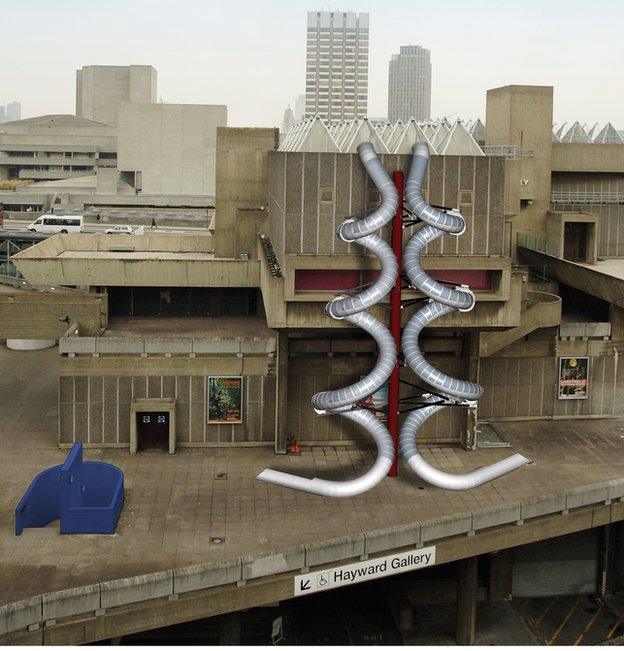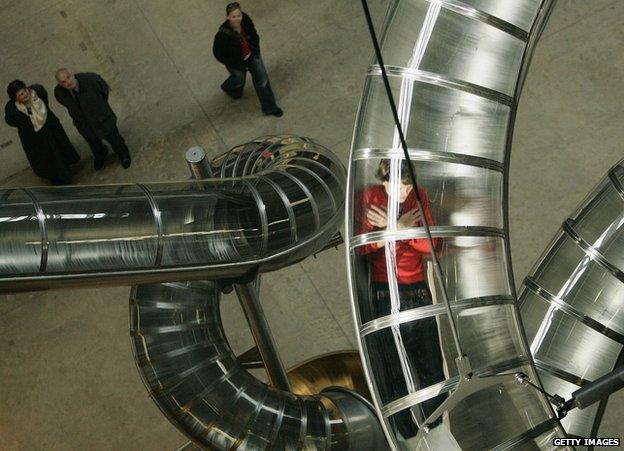Carsten Holler's giant slides return to London
- Published

A computerised mock-up of Isomeric Slides by Carsten Holler
Giant slides created by German artist Carsten Holler are to return to London this summer, this time at the Hayward Gallery.
In 2006 Holler installed five giant slides at the Tate Modern Turbine Hall, which were a big hit with the public.
This time two slides will be attached to the outside of the Hayward.
Holler said he hoped they would be a device for "experiencing an emotional state that is a unique condition somewhere between delight and madness".
The aim of the major exhibition, entitled Decision, is to constantly make visitors reflect on the choices and decisions they make.
The slides will be the final decision to make on how to exit the exhibition.
Visitors will even have to decide how to enter the first part of the exhibition with two separate entrances.
One exhibit, Pill Clock, is a ceiling-mounted timepiece that will drop over one million pills onto the gallery floor during the course of the exhibition.
The installation includes a drinking fountain for those visitors who decide to take one of the pills.
Flying mushrooms, moving beds
The major exhibition will show different media representing Holler's artistic output from the past 20 years.
It will also include newly-made pieces that have been specially commissioned, "designed to profoundly re-orientate our awareness of time and space".
They include Flying Mushrooms, an upside-down mobile with "giant psychedelic mushrooms", and Moving Beds, a pair of robotic beds that will restlessly roam the galleries like "insomniac twins".
Flying Machines (2008/2015) will be installed on one of the Hayward's outdoor terraces, opposite Waterloo Bridge, and will give visitors the sensation of soaring above city traffic.

Holler said his 2006 Tate Modern work Test Site was a "playground for the body and the brain"
The Belgian artist, who lives and works in Sweden, has an advanced degree in science and often draws on scientific experiments and research in his works.
Ralph Rugoff, director of the Hayward Gallery, called Holler "one of the world's most thought-provoking and profoundly playful artists, with a sharp and mischievous intelligence bent on turning our 'normal' view of things upside-down".
Decision, he continued, "will ask visitors to make choices, but also, more importantly, to embrace a kind of double vision that takes in competing points of view, and embodies what Holler calls a state of 'active uncertainty' - a frame of mind conducive to entertaining new possibilities."
The exhibition will run from 10 June until 6 September.